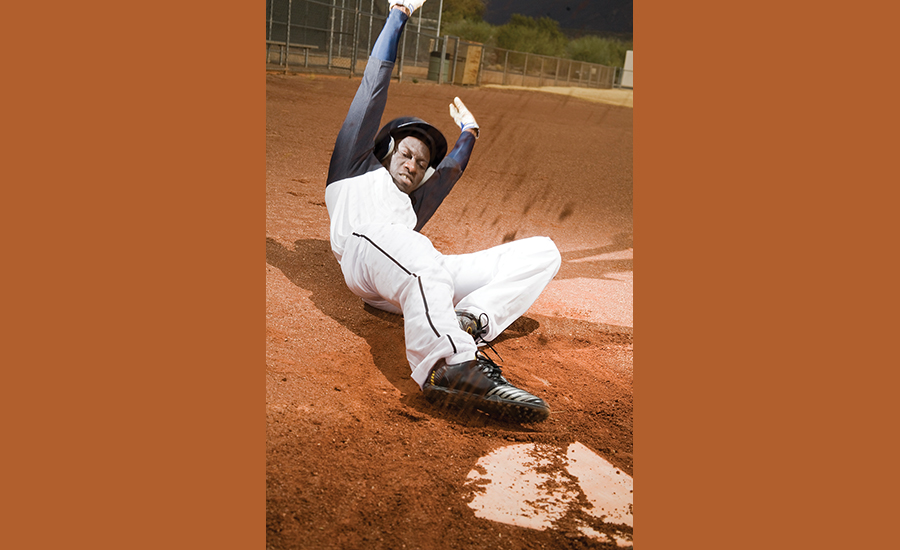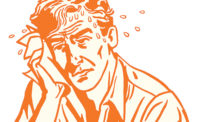To stay in the game…One slip, one fall can change everything

Turn on ESPN anytime and the chances are good you’ll soon be reminded that one wrong move can change an athlete’s career in seconds. Especially this time of the year -- as NFL training camps wrap up, the college football season begins and Major League Baseball teams push toward the playoffs -- the phrase “season-ending injury” is all too common.
I was fortunate enough during my 21-year MLB career to avoid this headline. September 6 marked the 20th anniversary of the day I played my 2,131st consecutive game, breaking Lou Gehrig’s MLB record for consecutive games played.
One bad break
But many aren’t that fortunate and for even great players, one slip, one fall, or one bad break can change everything.
Off the playing field, the story is the same. In fact, the consequences can be worse.
There’s just no ESPN reporting these facts:
• Falls, slips and trips make up the majority of general industry accidents, according to the U.S. Department of Labor.
• Falls, slips and trips account for 15 percent of all accidental deaths per year, second only to motor vehicles as a cause of fatalities. Falls, slips and trips also account for 25 percent of all reported injury claims and more than 95 million lost work days per year.
These are alarming statistics. But also alarming is the fact that in many cases, injury or death could be prevented.
Skills training
In baseball, one of the first skills a player learns is proper sliding technique to protect against injury each time they run at top speed from one base to the next.
On a job site, preventative measures are extremely important. Here are a few tips for you to apply to keep balance the next time you’re on the job:
• Reduce wet or slippery surfaces — Baseball players are fortunate to have grounds crews working on the field before, during, and after each game is played. But there are no grounds crews for construction sites. Outdoors, it’s important to constantly monitor surfaces and make sure they’re kept clean. Use anti-skid paint whenever possible to provide extra safety on steps, ramps and walkways. Indoors, moisture-absorb entry mats and ant-slip matting can also help improve safety. Sorbents and spill control products are also key to safety on a job site. In addition, “Wet Floor” signs should be used whenever necessary.
• Protective footwear is necessary — Footwear with outsoles designed to prevent slips are key to maintaining balance and traction on any job site. Outsoles in safety shoes can be specifically designed to be non-flammable, anti-acid, anti-fungal, extreme weather-resistant, anti-slip, anti-oil, and anti-static.
• Know your PFAS — A personal fall arrest system (PFAS) consists of an anchorage, connectors, a body belt or harness, and a lifeline, deceleration device, or lanyard. The PFAS is designed to safely stop a worker in a fall from a working level. Before using a PFAS, employees must be trained in the proper hook up, anchoring, and tie-off techniques. Remember that the strength of a PFAS is based on its being attached to an anchoring system that does not reduce the strength of the system.
• Check up on your equipment — From your shoes to your PFAS, it’s important to ensure the quality of your equipment before using it. Regularly check safety footwear to make sure soles are not worn to the point where grip may be an issue on slick surfaces. To maintain the integrity of a PFAS, its components — anchorage connectors, harness, and connecting devices — must be systematically inspected and maintained. Check for rust, cracks, dents or any other unusual markings before using the equipment. Any piece of the system involved in a fall must be removed from use.
• Maintain proper lighting — I’m not sure I would have lasted 21 consecutive games, let alone 2,131, playing baseball in the dark. On a job site, keep work areas well lit and clean. Walkways, staircases and any area where work is in progress should always be clear of clutter and obstructions. But in some cases, they aren’t and proper lighting can make all the difference.
Be sure to stay on your feet and safe, each and every day.
Throughout his record-breaking career, Major League Baseball Hall of Famer Cal Ripken, Jr., nicknamed “The Iron Man,” never missed a day of work. He retired in 2001 after playing 2,632 consecutive games — the equivalent of 17 years, or 6,205 days without a lost-time accident.
Looking for a reprint of this article?
From high-res PDFs to custom plaques, order your copy today!






